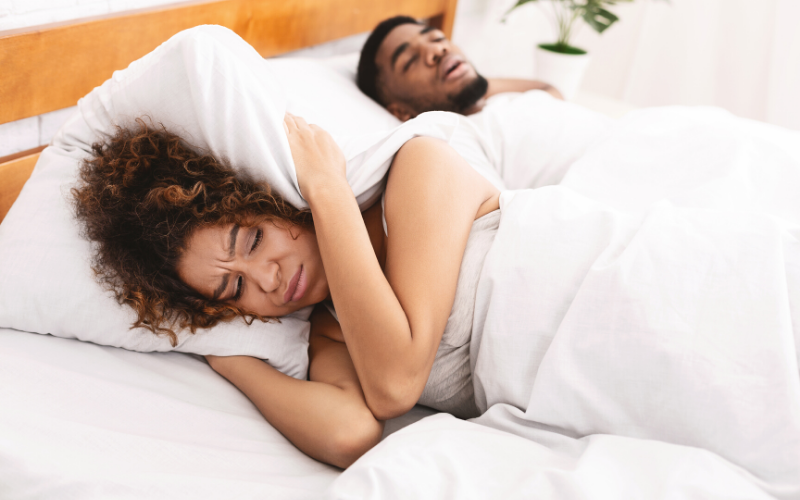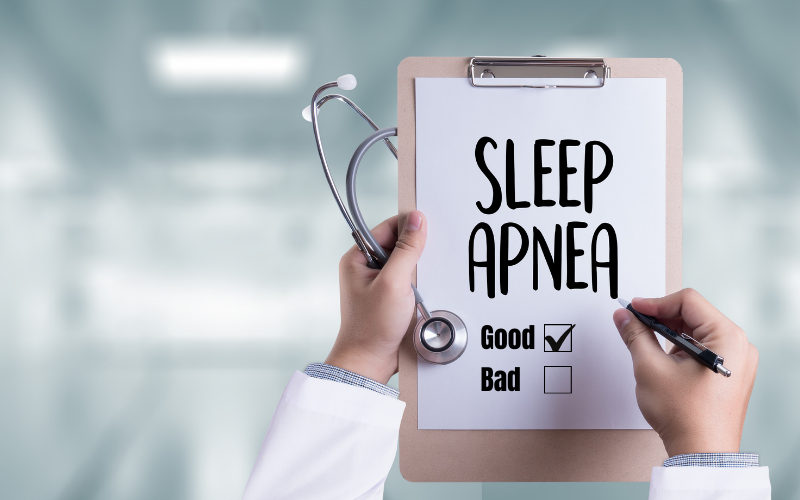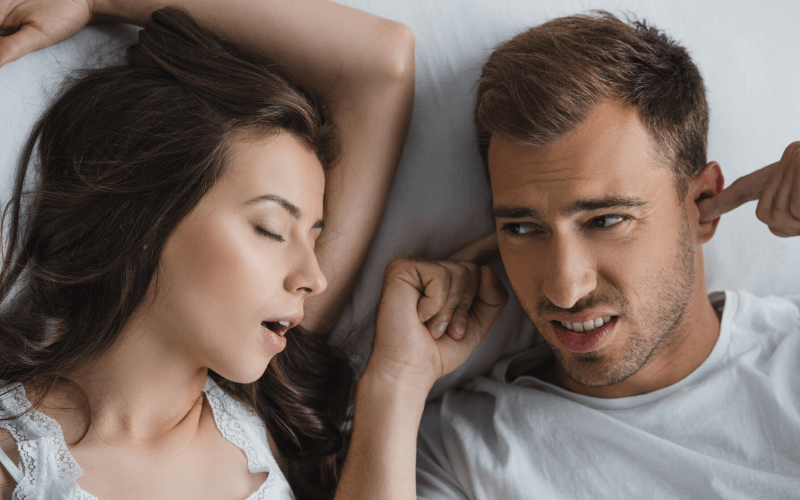How to tell if it’s time for a ‘sleep divorce’
(CNN)He snores until the walls rattle. She gives off a massive amount of body heat. One of you is a cover hog, kicks at night or takes consistent 3 a.m. bathroom breaks. Maybe you sleepwalk or suffer from insomnia. The list of reasons why your bed partner might be keeping you up at night could be long and as dreary as your mood when you drag yourself from bed each morning.
When it comes to your health, that’s nothing to yawn at: Being deprived of a full seven to eight hours of sleep each night has been linked to a higher risk of diabetes, stroke, cardiovascular disease and dementia, according to the US Centers for Disease Control and Prevention.

There’s an emotional toll as well, said sleep specialist Wendy Troxel, a senior behavioral scientist at RAND Corporation who authored “Sharing the Covers: Every Couple’s Guide to Better Sleep.”
“Sleep deprivation can affect key aspects of relationship functioning, like your mood, your level of frustration, your tolerance, your empathy, and your ability to communicate with your partner and other important people in your life,” Troxel said.Poor sleep — and that resulting crummy mood — makes people “less able to engage in ‘perspective taking,’ or putting small adverse events in context,” said sleep specialist Rebecca Robbins, an instructor in the division of sleep medicine for Harvard Medical School, who coauthored the book “Sleep for Success!”
That strain can contribute to depression, anxiety, and other emotional and relationship dysfunction, Robbins said.
Sleep training for adults prevents depression, study findsResearch done by Troxel and her team found that a well-rested person is “a better communicator, happier, more empathic, more attractive and funnier” — all traits that are key to developing and sustaining strong relationships, she said.Sleeping apart can help couples be happier, less resentful and more able to enjoy their time together in bed, particularly on weekends when work demands are lighter, Troxel said.”I tell couples to try to think of it not as a filing for sleep divorce, but as forging a sleep alliance,” she added. “At the end of the day, there is nothing healthier, happier and even sexier than a good night of sleep.”https://www.cnn.com/audio/player?episodeguid=85e00da6-889c-4c66-a203-adb70011ee08&parentOrigin=https%3A%2F%2Fwww.cnn.com&canonicalUrl=https%3A%2F%2Fwww.cnn.com%2F2021%2F12%2F04%2Fhealth%2Fsleep-divorce-wellness%2Findex.html
Rule out underlying sleep issues
Sleep partners are often the ones to flag signs of sleep disorders and encourage their loved one to visit a doctor or sleep specialist. Undiagnosed, sleep disorders may well harm you and your partner’s future health.That’s why experts say it’s best to check with a sleep specialist to rule out and treat any underlying condition before you leave your loved one’s bed — you may well be the key to identifying and treating a true health issue.
Coping skills
Once any serious health issue is ruled out, couples who find it emotionally bonding to sleep in the same bed may wish to try some practical coping tips before making the decision to sleep apart, Troxel said. No alcohol please. If you struggle with insomnia, cut out alcohol well before bed, experts say. It may appear to be helping you sleep, but booze actually causes middle of the night awakenings that can be hard to overcome. Snorers should eliminate alcohol as well, Troxel said, “because as everyone probably knows, if you sleep with a snorer and they have one too many drinks, the snoring will be much worse that night.” That’s because the alcohol further relaxes the throat muscles, encouraging that loud snore.
Keep your brain sharp by finding your sleep ‘sweet spot,’ study saysThis is where partners can be powerful and beneficial sources of what experts call “social control,” Troxel said.”If you’re prone to drinking but you know that the consequences are not only going to bad for your sleep, but your partner’s sleep as well, then maybe you’ll be more motivated to cut back a bit,” she said.Raise the head. For snoring, try sleeping on additional pillows or using an adjustable bed — anything that raises the head to keep the throat open, Troxel said.”For many people snoring tends to be worse when they are flying flat on their backs, so raising the head a little bit can be useful,” she said.If the underlying issue is congestion, try adding a humidifier to the room, she added. “Some people have had success with over-the-counter nasal strips to keep the airway open.”Drown the sound. Survival 101 for dealing with a snoring partner is trying to deafen the noise, Troxel said. Try ear plugs and run a fan or white noise machine.Try sleep scheduling. A snorer who sleeps with a partner with insomnia can help that partner get more sleep by going to bed later than their partner, Troxel said.”For example, a snorer can delay their bedtime by a half an hour to an hour,” Troxel said. “That allows the partner to fall into a deeper stage of sleep and possibly stay that way once the snorer comes to bed.”Turn the snorer. Sleeping on the back is the worse position for snoring, because the soft tissues of the mouth and tongue collapse into the throat. As the sleeper unconsciously forces air past those soft tissues, snores emerge.
How to fall asleep more quickly — the healthy way“If you can keep someone on their side, that can attenuate the snoring,” Robbins said. “I’ve heard of all kinds of creative techniques, such as putting a bra on the snorer in reverse and then putting tennis balls in the cups.”Full support body pillows may be an option, if they stay in place, said sleep specialist Dr. Raj Dasgupta, an associate professor of clinical medicine at the Keck School of Medicine at the University of Southern California.”I’m a fan of the simple things, but if you want to purchase something we’ve come a long way from sewing tennis balls into the back of our pajamas,” Dasgupta said. “You can buy a strap-on to your back that has little protruding foam-like things which are supposed to make you sleep on your side.”And there are some FDA-approved devices that strap to the throat or chest and provide vibrations designed to go off when you are on your back, prompting a move to side-sleeping.”
Time for separate rooms?
You’ve tried it all, and good sleep is still a distant dream. At this point, there’s no reason not to do what is best for each of you to get the quality sleep you need — especially since there are other ways to nurture a relationship besides sharing a bed.
The best alarm clocks of 2021 (CNN Underscored)“Couples can still make the bedroom a sacred space, even if they choose not to actually sleep together,” Troxel said. “You can develop pre-bedtime rituals and use that time to actually connect with your partner instead of being independently on a phone or laptop or whatnot. “She encourages couples to spend quality time together before bed, sharing details of the day and sending positive messages to each other. “We know self-disclosure is good for relationships, it’s good for sleep,” Troxel said. “If you tell your partner you’re grateful for them, that’s a deep form of connection. Gratitude is good for relationships, it’s good for sleep.”
Nor does a “sleep divorce” have to mean separate beds every night, Troxel said. It could be just the workweek, with weekends spent in the same bed. It could be every other night — the options are as unique as each couple. “There truly is not a ‘one-size-fits-all’ sleeping strategy for every couple,” Troxel said. “It’s really about finding the strategy that’s going to work best for the two of you.”





